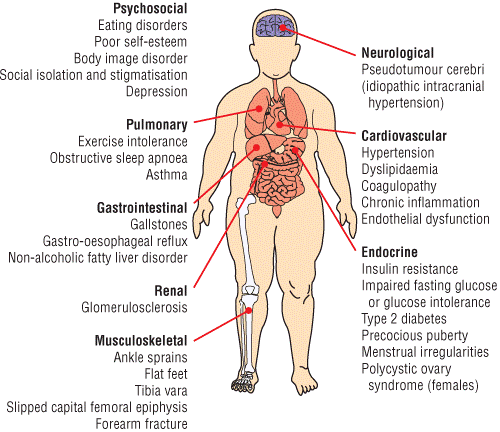UNDERSTANDING OBESITY
Teenage life is awkward enough without having to deal with a lot of excess weight – and sometimes you aren’t even eating all that much. So what could it be? Let’s first start by understanding obesity and what it means.
When we use the term Obesity, we refer to excess fat in the body and we measure this (indirectly) by way of the Body Mass Index (BMI) because it gives us a rough indication of how much we should weigh based on our age, height and gender. While there aren’t strict, fixed weights for people under 20 years of age due to the fact that you are still constantly growing, the WHO has released some guidelines that we could follow to measure if we are obese, healthy or underweight.
Let’s calculate our BMI
BMI = Weight (Kg)
Height (m)2
Height (m)2
You can also visit this site to be able to calculate your BMI - http://www.nhlbi.nih.gov/health/educational/lose_wt/BMI/bmicalc.htm
THE TYPES OF OBESITY
Obesity occurs is two forms. If you feel you are obese or would like to understand your body and weight better, find out how and why it occurs as follows:
a. Simple Obesity
This is a case in which you are both tall and obese due to an eating too many calories or getting too little exercise. Simple obesity has become a global problem since of late, including Sri Lanka. Recent studies have shown us that nearly one third of teenagers in Colombo alone fall into either the overweight or obese categories.
This is a case in which you are both tall and obese due to an eating too many calories or getting too little exercise. Simple obesity has become a global problem since of late, including Sri Lanka. Recent studies have shown us that nearly one third of teenagers in Colombo alone fall into either the overweight or obese categories.
b. Pathological Obesity
This form of obesity occurs in people who are shorter. The condition is also associated with underlying hormonal problems and genetic disorders.
This form of obesity occurs in people who are shorter. The condition is also associated with underlying hormonal problems and genetic disorders.
Obesity & Complications
Obesity affects you entire body and this means it could lead to psychological and social problems too. As we mentioned at the beginning of this section, it is most certainly not a pleasant experience to deal with obesity at an age when most other changes in your life are also difficult to deal with. The most important thing to remember though is that many cases of obesity are very much reversible in the early stages if your obesity is properly controlled. If you don’t treat or attend to your weight gain when you first notice it however, you could be facing any of the following complications as a result of your excess weight, that go far beyond the social:

Metabolic Syndrome
This a combination of obesity (increased waist circumference) with metabolic derangements such as high blood lipid levels, high blood sugar levels or impaired sugar tolerance and high blood pressure. It has both devastating and long term effects such as strokes and heart attacks. Medical attention is vital in these cases.
If you think you are overweight or obese, what should you do?
- Talk to your local healthcare provider/doctor. They will perform a full body examination, going on to measure your height and weight to calculate the BMI
- If it is evident that you are obese, the doctor will go on to order relevant blood tests such as lipid profiles, fasting blood sugar levels, liver enzyme levels and sometimes an ultrasound scan to look at the liver in case any complications have occurred as a result of the obesity.
How can you prevent or reduce obesity?
Being able to do this has a core emphasis on your lifestyle, including altering some of your regular practices and behaviours. Have a look at the following guidelines and see how they affect your own life:
1. Changing your Eating Habits
a. Plan your meals and make a have a balanced selection of items with every bill.
b. Try to avoid any foods that are high in fat and simple sugars (fast food/ junk food)
c. Increase your daily dietary fibre intake
d. Eat meals as a family whenever possible instead of while watching television or at the computer
e. Don’t reward yourself for anything with food
f. Limit your snacking or snack of healthy items no more than twice a day
g. If you are still concerned, you could get advice from a dietician/nutritionist for the best results
b. Try to avoid any foods that are high in fat and simple sugars (fast food/ junk food)
c. Increase your daily dietary fibre intake
d. Eat meals as a family whenever possible instead of while watching television or at the computer
e. Don’t reward yourself for anything with food
f. Limit your snacking or snack of healthy items no more than twice a day
g. If you are still concerned, you could get advice from a dietician/nutritionist for the best results
2. Increasing your Physical Activity
a. Attempt to work on a graded exercise programme – you can find one that works for you here: www.cpdtrainonline.com
b. Try walking instead of travelling in a vehicle whenever possible.
c. Engage in physical activity like swimming, cycling and dancing
b. Try walking instead of travelling in a vehicle whenever possible.
c. Engage in physical activity like swimming, cycling and dancing


